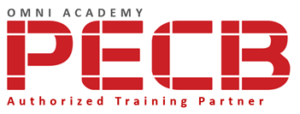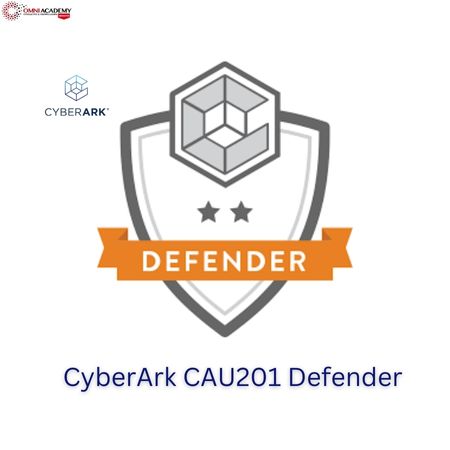CIA Course – Certified Internal Auditor (Part-1)
Certified Internal Auditor is a globally-recognised qualification that provides a firm foundation for a career in internal auditing. When you study the CIA you’ll learn about internal audit theory and the core frameworks, including the International Standards, and how to plan and perform an internal audit engagement. You will also be introduced to the concepts of internal control, risk, governance and technology.
CIA Career Scope
Certified Internal Auditors are now in high demand because they contribute to key business functions including corporate governance, risk management, internal control, fraud detection and prevention, operations etc. Candidates with CIA can become internal auditor, internal auditing manager, auditor, chief internal auditor, quality assurance manager, internal audit director and auditing manager.
CIA Course Objectives
- Demonstrate your proficiency and professionalism
- Distinguish you from your peers
- Develop your knowledge of best practices in the industry
- Lay a foundation for continued improvement and advancement
CIA Course Domains
- Domain I: Foundations of Internal Auditing (15%)
- Domain II: Independence and Objectivity (15%)
- Domain III: Proficiency and Due Professional Care (18%)
- Domain IV: Quality Assurance and Improvement Program (7%)
- Domain V: Governance, Risk Management, and Control (35%)
- Domain VI: Fraud Risks (10%)
Part 1 syllabus
Domain 1: Foundations of Internal Auditing (15%)
| A | Interpret The IIA’s Mission of Internal Audit, Definition of Internal Auditing, and Core Principles for the Professional Practice of Internal Auditing, and the purpose, authority, and responsibility of the internal audit activity | Proficient |
| B | Explain the requirements of an internal audit charter (required components, board approval, communication of the charter, etc.) | Basic |
| C | Interpret the difference between assurance and consulting services provided by the internal audit activity | Proficient |
| D | Demonstrate conformance with the IIA Code of Ethics | Proficient |
Domain II: Independence and Objectivity (15%)
| A | Interpret organisational independence of the internal audit activity (importance of independence, functional reporting, etc.) | Basic |
| B | Identify whether the internal audit activity has any impairments to its independence | Basic |
| C | Assess and maintain an individual internal auditor’s objectivity, including determining whether an individual internal auditor has any impairments to his/her objectivity | Proficient |
| D | Analyse policies that promote objectivity | Proficient |
Domain III: Proficiency and Due Professional Care (18%)
| A | Recognise the knowledge, skills, and competencies required (whether developed or procured) to fulfil the responsibilities of the internal audit activity | Basic |
| B | Demonstrate the knowledge and competencies that an internal auditor needs to possess to perform his/her individual responsibilities, including technical skills and soft skills (communication skills, critical thinking, persuasion/negotiation and collaboration skills, etc.) | Proficient |
| C | Demonstrate due professional care | Proficient |
| D | Demonstrate an individual internal auditor’s competency through continuing professional development | Proficient |
Domain IV: Quality Assurance and Improvement Program (7%)
| A | Describe the required elements of the quality assurance and improvement program (internal assessments, external assessments, etc.) | Basic |
| B | Describe the requirement of reporting the results of the quality assurance and improvement program to the board or other governing body | Basic |
| C | Identify appropriate disclosure of conformance vs. nonconformance with The IIA’s International Standards for the Professional Practice of Internal Auditing | Basic |
Domain V: Governance, Risk Management, and Control (35%)
| A | Describe the concept of organisational governance | Basic |
| B | Recognise the impact of organisational culture on the overall control environment and individual engagement risks and controls | Basic |
| C | Recognise and interpret the organisation’s ethics and compliance-related issues, alleged violations, and dispositions | Basic |
| D | Describe corporate social responsibility | Basic |
| E | Interpret fundamental concepts of risk and the risk management process | Proficient |
| F | Describe globally accepted risk management frameworks appropriate to the organisation (COSO – ERM, ISO 31000, etc.) | Basic |
| G | Examine the effectiveness of risk management within processes and functions | Proficient |
| H | Recognise the appropriateness of the internal audit activity’s role in the organisation’s risk management process | Basic |
| I | Interpret internal control concepts and types of controls | Proficient |
| J | Apply globally accepted internal control frameworks appropriate to the organisation (COSO, etc.) | Proficient |
| K | Examine the effectiveness and efficiency of internal controls | Proficient |
Domain VI: Fraud Risks (10%)
| A | Interpret fraud risks and types of frauds and determine whether fraud risks require special consideration when conducting an engagement | Proficient |
| B | Evaluate the potential for occurrence of fraud (red flags, etc.) and how the organisation detects and manages fraud risks | Proficient |
| C | Recommend controls to prevent and detect fraud and education to improve the organisation’s fraud awareness | Proficient |
| D | Recognise techniques and internal audit roles related to forensic auditing (interview, investigation, testing, etc.) | Basic |
CIA FAQs
Q. What is the passing score of CIA exam?
A. For each part of CIA exam, a raw score is converted into a scaled score ranging between 250 to 750 points. A scaled score of 600 or above is required to pass the exam.
Q. When can I apply or register for the exam?
A. Candidates can apply anytime for the programme. Once registered, candidates will have to complete the programme within four years.
Q. Can I retake the exam in case I fail?
A. In case candidates fail in the exam, they need to wait atleast 90 days for re-appearing in the same.
Course Materials
- Course reference manual containing copy of course slides, support documents, quizzes and answers
- Omni Academy Course Completion Certificate
Course Eligibility
- Education Level – Bachelor’s Degree (or equivalent)
CIA Exam Fee
Application Fee (Member 115 USD, Non-Member 230 USD, Students 65 USD)
CIA Exam Fee (Member 280 USD, Non-Member 395 USD, Students 230 USD)
International Students Training Fee : 450 USD | 2,000 AED | 2,000 SAR
CIA Course Useful Links
Job Interviews Questions
- Ethical Hacking 115 top Job interview Questions
- Ethical Hacking Job Interview Questions And Answers
- Cyber Security/ PenTesting Interview Questions and Answers
- Cyber Security Manager Job Interview Questions
Job Interview Preparation (Soft Skills Questions & Answers)
- Tough Open-Ended Job Interview Questions
- What to Wear for Best Job Interview Attire
- Job Interview Question- What are You Passionate About?
- How to Prepare for a Job Promotion Interview
🎥 Your FREE eLEARNING Courses (Click Here)
Internships, Freelance and Full-Time Work opportunities
Flexible Class Options
- Week End Classes For Professionals SAT | SUN
- Corporate Group Trainings Available
- Online Classes – Live Virtual Class (L.V.C), Online Training
Related Information Security Courses
Certified Internal Auditor CIA Part 2 Training
Certified Internal Auditor (CIA) Part 3 Training
Offensive Security Certified Professional (OSCP)
Lead Internal and External Auditor Diploma
Cyber Security -CISSP 8 Domains Complete Courses
Certified Information Security Manager (CISM)
CISA: Certified Information Systems Auditor Exam
ISO 27001 Information Security Management Systems – ISMS
Penetration Testing Certificate Training Services
Ethical Hacking – CEH
Cyber Security is all about trusted relationships, from the time we first meet, we’ll be focused on helping you to improve your compliance and security posture, take advantage of the latest technology innovations, stay ahead of malicious threats, and drive efficiencies in service delivery across your business. OMNI cyber security experts are dedicated to your success, we are happy to provide you a FREE Cyber Security Assessment – contact us +92.213.4986664, +92.312.2169325
Click here to get Expert Advise from our Information Security Service Expert (Cyber Security Services)
[/vc_column_text]







